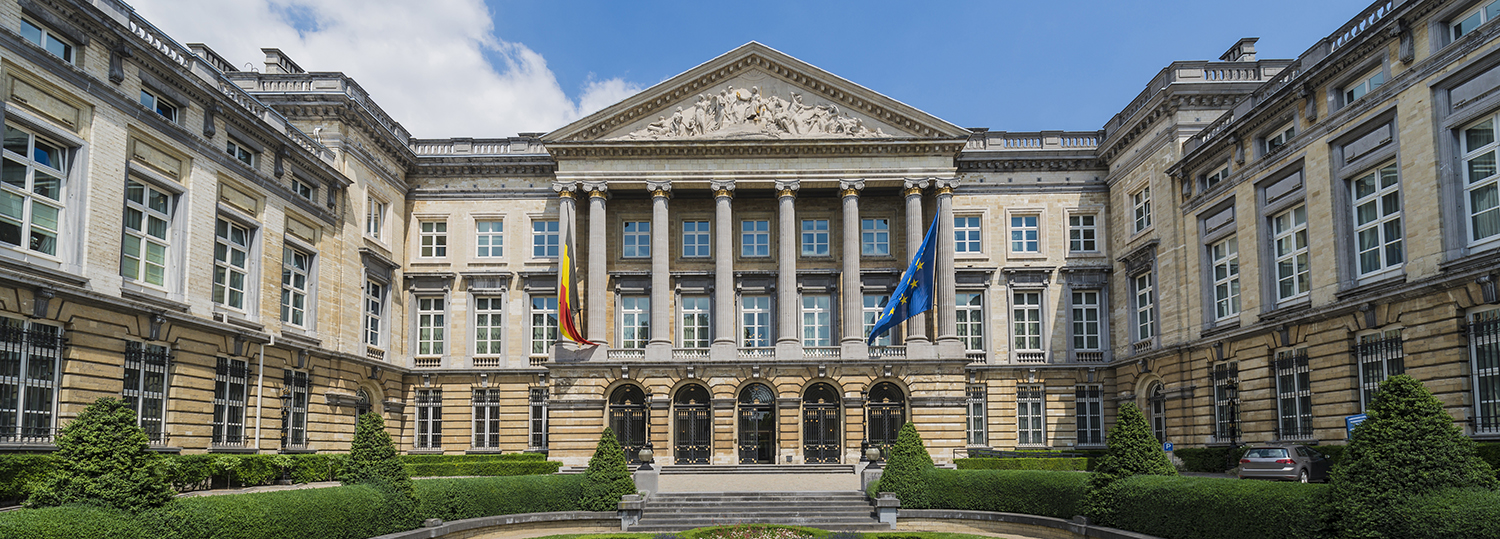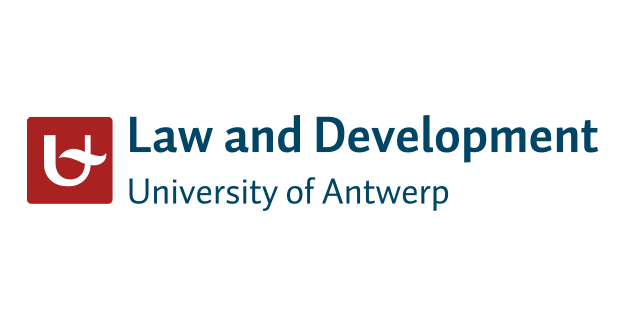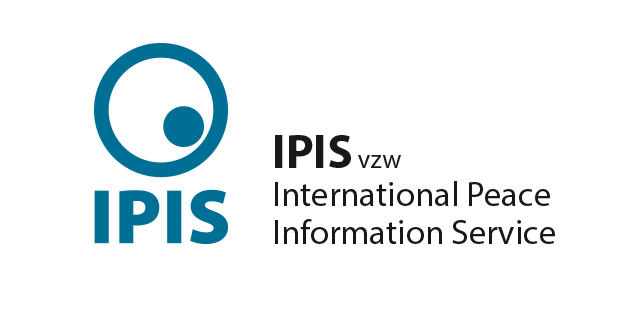1 Human Rights law in force in Belgium
What are human rights?

Human rights are general principles and standards that entitle human beings to be treated with dignity and without discrimination for reasons of race, colour, sex, language, religion, opinion, national or social origin, property, birth or other status. These rights are all interrelated, interdependent and indivisible.
The United Nations (UN) is the main international organisation that promotes the universal character of human rights and requires their protection and fulfilment by its member states. Human rights have been incorporated into national legislation, in international treaties and in customary international law. The Universal Declaration of Human Rights is the cornerstone of modern human rights law and all the UN member states committed to apply it at the World Conference on Human Rights (Vienna 1993). The International Bill of Human Rights consists of the Universal Declaration, the International Covenant on Civil and Political Rights (ICCPR) and the International Covenant on Economic, Social and Cultural Rights (ICESCR).
Besides the UN, at the regional level the Council of Europe (CoE) also promotes human rights through international conventions, monitors member states’ compliance and makes recommendations through monitoring bodies. In the European Union (EU), the Charter of Fundamental Rights of the EU (The EU Charter) has been binding since 2000 when the Treaty of Lisbon incorporated the Charter into the EU legal system. It is a modern charter that covers the main rights protected by the UN and the CoE systems, but also recognises other rights (recognised by case law in other systems). Some of these rights are considered as a third generation of human rights, such as environmental, data and consumer protection rights. They are also interrelated, interdependent and indivisible. The Court of Justice of the European Union (CJEU) and the courts of the member states interpret and apply the EU Charter.
International humanitarian law (IHL) is also relevant for organisations and people because it defines the responsibilities of states and non-state armed groups during a conflict and seeks to mitigate the effects of armed conflict. IHL recognises the right to receive humanitarian assistance and the duty to protect civilians. The principles that guide humanitarian action are humanity, impartiality, neutrality and independence. All EU member states have ratified the conventions and protocols on IHL. Organisations and persons, as well as their agents, must therefore respect IHL. In case of violations, they can be criminally or civilly liable.
At the national level, the international agreements referred to above are binding in Belgium. The ratification of these treaties means that Belgium must take the necessary legislative, administrative and/or judicial measures to guarantee their respect and enforcement within Belgium’s jurisdiction. Belgium must also cooperate with other states to realize human rights and ensure that its own agents, organisations and persons respect these treaties. The Belgian Constitution (Title II) also protects fundamental rights of citizens and foreigners in Belgium, except in exceptional cases.
This tool briefly presents the binding human rights systems in force in Belgium that the state, organisations and persons must respect and comply with. They are organised by types of rights, but as mentioned, they all are interdependent and interconnected.
- Civil and political rights and freedoms
The UN ICCPR protects rights related to the enjoyment of physical and mental freedom and fair treatment. Some of these rights are the right to life, to privacy and to a fair trial; freedom from torture, from slavery, from arbitrary detention and from discrimination; freedom of religion and of expression. Some of these rights are absolute, such as the right to life and to be free from torture, but the state can restrict most civil and political rights in exceptional and justified circumstances.
The European Convention on Human Rights (ECHR), adopted in the framework of the Council of Europe (CoE), also guarantees civil and political rights and freedoms, such as the right to life, the right to a fair hearing, freedom of expression, freedom of thought, conscience and religion and the protection of property. This convention also forbids torture and inhuman or degrading treatment or punishment, forced labour, arbitrary and unlawful detention, and discrimination, similarly to the ICCPR. The relevance of the CoE system, in contrast with the UN system, is that the European Court of Human Rights (ECtHR), (Strasbourg, 1959) hears individual and inter-state complaints based on the ECHR and its judgments are binding. Some member states have been sanctioned, ordered to pay compensation or required to reform their legal system or procedures in diverse areas.
The European Convention for the Prevention of Torture and Inhuman or Degrading Treatment or Punishment, reinforces the protection against torture and inhuman or degrading treatment. The corresponding European Committee for the Prevention of Torture and Inhuman or Degrading Treatment or Punishment (CPT) of the CoE is charged with the enforcement of this convention.
The EU Charter guarantees fundamental rights and freedoms classified into six groups that more or less correspond to the civil, political, economic, social and cultural rights mentioned above in the UN and CoE systems. Among these groups, the ones listed under the titles of dignity, freedoms, equality and justice refer to civil and political rights. Additionally, it seeks to guarantee a reinforced protection to the family, personal data, the right to education and the right to property.
The right to privacy, provided for by various UN Conventions, the ECHR, and the CoE Convention 108 , protects persons with regard to automatic processing of personal data. It has been recently reinforced in the EU by the General Data Protection Regulation (GDPR).
The Belgian Constitution (Title II) fundamental rights of citizens and foreigners in Belgium, except in exceptional cases. The rights protected are the right to equality and non-discrimination, civil and political rights and freedoms and the right to property. Belgian courts are therefore competent to protect and enforce fundamental rights recognised by the constitution and by the international treaties ratified by Belgium. Besides the constitution, diverse national and subnational laws protect these rights as well. They will be referred to in the following tools, depending on the topic.
- Economic, social and cultural rights
The ICESCR promotes the protection and enforcement of labour rights (such as a fair wage, healthy working conditions, and freedom of association), social rights (such as the right to education, to an adequate standard of health and of living) and to participate in cultural life. The term “social rights” is usually used as a synonym for labour rights in other legal frameworks. This is therefore also the case in this toolkit. States must guarantee economic, social and cultural rights without discrimination and take steps towards the full realisation of these rights, in accordance with their available resources and recognising that the core content of each right must be granted for all.
The European Social Charter also guarantees fundamental social and economic rights without discrimination, such as labour rights, housing, health, education, social protection and welfare. Vulnerable persons such as elderly people, children, people with disabilities and migrants are particularly protected. The European Committee of Social Rights of the CoE monitors compliance with the Charter through the Collective Complaints Procedure, and the Reporting System. The decisions of the Committee must be respected by member states, but they are not directly enforceable in the domestic legal systems as the judgments of the ECtHR are.
The EU Charter also guarantees fundamental economic, social and cultural rights mentioned above. They are mainly listed under the category of solidarity rights. They are of particular relevance for organisations because they protect rights relating to decent work, environmental protection, sustainable development and consumer protection.
The Belgian Constitution (Title II) also protects this category of fundamental rights and links the protection of these rights to a life with human dignity. However, these rights are in some cases subject to certain obligations and conditions for exercising them. In this respect, national and subnational laws define how fundamental rights are guaranteed. The rights granted by the constitution are labour rights and the rights to health, to an adequate housing, to family allowances and to cultural and social fulfilment. Protection of the right to education is reinforced, as universal access is guaranteed.
- Special protection of persons belonging to vulnerable groups
Other relevant human rights treaties adopted by the UN member states seek to protect human rights of persons belonging to groups or populations that may need special protection to enjoy their human rights without discrimination. The reinforced protection is motivated by the higher risk of discrimination and/or adverse human rights impacts that these persons or groups may suffer. They are mainly children, women, indigenous peoples, people with disabilities and migrants. Besides the state, organisations and persons must also avoid their activities affecting vulnerable individuals or communities.
In addition, the tripartite UN agency, the International Labour Organisation (ILO), was created to provide reinforced protection to workers, considered as key stakeholders in economic relations. Other specific non-human rights treaties also seek to protect vulnerable populations that are victims of human trafficking, a phenomenon also known as modern slavery.
Other CoE conventions also seek to protect vulnerable populations, such as those that fight against corruption, torture and inhuman treatment, trafficking of human beings, child abuse and racism. These conventions also have their own monitoring bodies. The EU Charter also provides special protection to vulnerable populations and minorities by recognising the right to asylum and granting consumer protection.
The Belgian Constitution (Title II) and the organic law of the Constitutional Court also provide special protection to children and guarantees the rights and freedoms of ideological and philosophical minorities.
Some of the relevant rights for the purposes of this toolkit are referred to below:
Labour rights
Labour rights are particularly protected by the International Labour Organisation (ILO), in which governments, employers and workers of the member states define labour standards and develop policies and programmes to promote decent work and income for all, wide effectiveness of social protection and social dialogue among employers, employees and the state. These objectives are known as the ILO's Decent Work agenda.
The ILO Fundamental Principles and Rights at Work reinforce the protection of freedom of association and the right to collective bargaining, and promote the elimination of compulsory labour, child labour and discrimination in employment. The Declaration on Fundamental Principles and Rights commits all ILO Member States, whether or not they have ratified the fundamental conventions, to respect labour principles.
These principles are regulated by the eight core binding conventions on human rights for workers, that protect the freedom of association, the rights to organise collective bargaining and to equal remuneration and protection against forced labour, the worst forms of child labour and discrimination. These have been ratified by Belgium.
The four governance conventions complement the eight core conventions by promoting enhanced labour inspection in general and in particular in the agricultural sector, employment policies and tripartite consultations on international labour standards.
These rights are also protected at the regional level by the CoE and by the EU, which has also reinforced the protection of workers, particularly on the topics of discrimination and posted workers (temporarily sent by an employer to work in another EU member state). The sustainable development clauses included in recent trade and investment agreements of the EU also seek to enlarge the protection of workers in European value chains, by requiring states parties to these agreements to enforce the ILO core conventions.
Protection against modern slavery or trafficking human beings
Although the UN Convention against Transnational Organized Crime and the Protocol to Prevent, Suppress and Punish Trafficking in Persons Especially Women and Children, are not considered as a part of human rights law, they complement it because they seek to protect vulnerable populations which are victims of modern slavery. Both are in force in Belgium, and there is a specific declaration of their binding character for subnational regions as well.
At the level of the CoE, the Convention on Action against Trafficking in Human Beings was also ratified by Belgium and aims to guarantee and enforce the right to decent work, as well as protecting the rights of vulnerable populations.
The EU has also fought against trafficking in human beings. The EU Charter, prohibits slavery, forced labour and trafficking in human beings. The Treaty of Lisbon also requires European lawmakers to combat trafficking in human beings, particularly of women and children, because this is considered a transnational crime. These EU regulatory initiatives have been made part of national law in member states, including Belgium.
Consumer protection
The EU is the leading regional organisation in protecting consumers. Together with member states, it has developed a well-structured framework to enforce these rights and to claim reparation from the state or from organisations. Some relevant mechanisms are those on product safety (linked to the right to health or the right to life), data protection (linked the right to privacy or right to a good name), misleading advertising (linked to the right to life or right to a healthy environment), unfair contracts (linked to the rights to housing and to property), and the protection of vulnerable consumers such as children.
The EU has enacted several regulations and directives to protect consumers, particularly in economic sectors considered of general interest, unfair commercial practices that affect consumers, and dispute resolution. The EU has also created several agencies specialised in the protection of consumers. Some of these can be relevant for the purposes of this toolkit, such as the European Food Safety Authority (EFSA), the European Medicines Agency (EMA), the Consumers, Health, Agriculture and Food Executive Agency (CHAFEA) and the European Chemicals Agency (ECHA).
In Belgium, theCode of Economic Law and other national and subnational laws have further developed this European framework to guarantee the fundamental rights of consumers in Belgium and ensure that organisations under its jurisdiction respect and protect consumers’ rights.
- Environmental rights
Human rights are also closely related to environmental conservation. Some of them are recognised as environmental rights, such as: the right to the enjoyment of a safe, clean, sustainable and healthy environment, the right to access to drinking water and sanitation, and the procedural rights relating to environmental issues (the rights of access to information and justice, and the right to participate in decision-making).
At the international level, only the EU Charter has recognised the human right to a healthy environment, but the link between human rights and environmental conservation is recognised by many international treaties which requires member states to regulate and limit industrial and other activities that may harm human beings and the environment. These activities are related to climate change and to specific high-risk activities such as the generation, transport and (transboundary) management of hazardous and other wastes. They also promote shared responsibility and cooperative efforts among member states with respect to the international trade of these wastes and chemicals, particularly the Persistent Organic Pollutants (POPs).
The Environmental Rights Initiative of the UN Environment Programme (UNEP) also encourages states and organisations to promote, protect and respect these environmental rights. Some legally binding agreements also emphasise the need to protect vulnerable populations, indigenous peoples and environmental defenders. The online resource portal of the Special Rapporteur on Human Rights and the Environment and the InforMEA Initiative provide access to all the Multilateral Environmental Agreements (MEA).
The Water Convention from the UN Economic Commission for Europe (UNECE) seeks to ensure the quantity, quality and sustainable use of transboundary water resources, a better management of water ecosystems, and to guarantee an adequate supply of safe drinking water and sanitation for everyone.
Other international conventions seek to grant access to information, public participation in decision-making and access to justice in environmental matters. The Aarhus Convention from (UNECE) and its Protocol on Pollutant Release and Transfer Registers (PRTRs) are the only legally binding international treaties related to the Rio Declaration on Environment and Development (1992) which supports the participation of citizens affected by environmental issues. Both are open for global accession. Other agreements require member states to assess at an early stage the environmental impact (see also Tool 4 and Tool 8) of activities that may have a significant adverse environmental impact across boundaries.
In the system of the CoE, the right to a healthy environment has been mainly protected by case law of the ECtHR, and decisions of the European Committee of Social Rights. These decisions have recognised that adverse environmental factors may affect individual rights and as a result, citizens must have procedural rights to access information, to participate in decision-making processes and to access justice in environmental cases. These bodies have also limited some individual rights or economic freedoms, such as property rights, when their enjoyment produces adverse impacts on the environment. The CoE has opened the Convention on the Protection of the Environment through Criminal Law for signature and ratification, but it has not been ratified by any member state except Estonia so far.
As explained, the EU Charter recognises and protects the right to a healthy environment. As a result, the EU regulates in detail the sectors of water, air, nature, waste, noise, and chemicals, as well as other related topics such as environmental impact assessment, access to environmental information, public participation and liability for environmental damage.
The EU environmental liability framework is based on the polluter pays principle which is regulated by the Treaty of Lisbon. Although this framework refers to "pure ecological damage" regulated by administrative authorities, the protection of the right to a healthy environment is also related to it. If human beings are affected, they, or other stakeholders such as NGOs, can claim a remedy.
The EU has also regulated environmental crime. This is a breach of environmental legislation that actually or potentially harms the environment and human health. These breaches refer mainly to illegal emission of substances into air, water or soil, illegal trade in wildlife, illegal trade in ozone-depleting substances and illegal shipment or dumping of waste. The European Environmental Agency is competent to inform the stakeholders. All member states should make these regulations part of their legislation. In Belgium, subnational entities have also competences in environmental issues.




